2016 is ACI EUROPE’s 25th anniversary year. Here, a selection of airport members and World Business Partners offer their congratulations, share their thoughts on the evolution of the airports sector over the past 25 years, and look ahead to the next 25. Report by Ross Falconer.
Miguel Leitmann, CEO Vision-Box
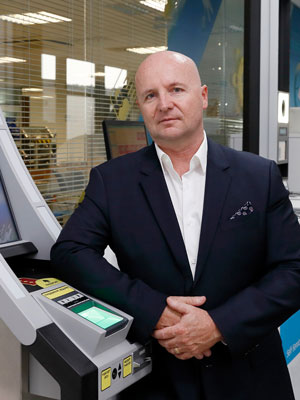 How long has your organisation been a member of ACI EUROPE?
How long has your organisation been a member of ACI EUROPE?
Vision-Box has been collaborating closely with ACI EUROPE for many years and recently joined as a Gold Member. We have been actively participating on a regular basis in exhibitions around the world promoted by ACI and contributing to an open discussion about the future of air travel from a user-centric perspective. This year is no exception, as we will be joining several ACI events and initiatives worldwide.
Do you have a message for ACI EUROPE as it marks its 25th anniversary this year?
On behalf of Vision-Box, I would like to congratulate you on this special milestone. We are proud to be working together with such a renowned organisation and thankful for the contribution of ACI to an open debate towards the definition of standardised airport processes in the aviation industry. We are enthusiastically working with ACI and its members in order to create a lasting legacy, providing a better world to society through ground-breaking innovation made reality around the globe.
What are your thoughts on the evolution of the airports industry in Europe over the past 25 years?
Airports have come a long way in 25 years. Widespread internet access, web technologies and mobile phones have had a tremendous, positive impact in the way passengers experience their travel and have raised the bar on customer expectations on seamless flow.
At the same time, especially since the 9/11 tragic events, we have seen an increase in terrorism threats in the aviation sector, as well as strong migration flows, putting additional pressure on airport security and border control.
The aviation industry has responded appropriately to the security challenges and the market has been working very well in bringing more accurate, reliable and affordable solutions into existence. The passenger experience of the end-to-end journey, on the other hand, has suffered considerably.
In the last decade, we have witnessed remarkable efforts to improve the situation. Vision-Box, in particular, has been providing self-service solutions for automated border control. More recently, we have delivered Happy Flow, an orchestrated platform for a seamless end-to-end passenger journey, which uses biometrics as the unique identification token, allowing passengers to go from the curb to boarding without any documents or human assistance.
What are your hopes and expectations for the continued evolution of the airports industry over the next 25 years?
Airports will go from being a stressful place you need to go through when you fly, to a pleasant place you want to go to whether you are flying or not: a shopping mall with runways. In today’s world, such transformation will require airports to find an optimal compromise between passenger experience and security.
Our vision of the airport ecosystem of the future relies on the concept of a single biometric token as the enabler of self-service seamless flow and access to goods and services. We strongly believe self-service through biometrics will become the de facto standard. In a very near future, the vast majority of passengers will be using a mobile app to interact with the entire travel experience and associated services. They will enroll their biometrics on the move and link it to an officially verified identity, for subsequent seamless face authentication at the various checkpoints in the airport.
In the medium-term, airports, airlines and governments will rely on an open services platform where they can offer services, collaborate and create real time business rules about passenger flow, thus obtaining actionable intelligence to reach out to customers with the right context, optimise their operations in real time and enhance security, without compromising passenger privacy or information security. That is exactly where Vision-Box is focusing, contributing to the ultimate goal of providing a superior passenger experience, while bringing early adopters to the forefront of passenger innovation.
Hüseyin Keskin, CEO İGA Airport Operation
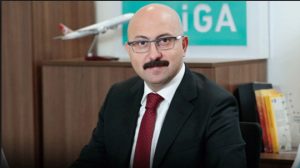
Do you have a message for ACI EUROPE as it marks its 25th anniversary this year?
During the past 25 years, ACI EUROPE has established itself as an invaluable voice of the European airports and made us all come closer together. Its annual Best Airport Awards or its commercial and retail conference & exhibition are events not to be missed. The Airport Business magazine has become a leading source of information. ACI EUROPE is a voice to be heard and it is heard where it is important, competent, reliable, persistent, if necessary. This is an achievement to be proud of and to which I congratulate wholeheartedly!
What are your thoughts on the evolution of the airports industry in Europe over the past 25 years?
Our industry has seen unprecedented growth in the last decades. Over the past 25 years, the number of passengers travelling by air has increased and air travel is no longer luxury. Globalisation has given most airports an international outreach, airport management has become much more professional, while, at the same time, the regulatory framework has increased. The capacity of airports was increased by number of passengers. The importance of sustainable systems for aviation were comprehended. The technology of passenger experience was developed in order to analyse the new series of travel habits. Digitisation has started to diffuse from engineering knowledge to connectivity in flight. The improvement of aviation focused on customer experience, with investing in major programmes in personalisation.
What are your hopes and expectations for the continued evolution of the airports industry over the next 25 years?
We have seen tremendous growth in the past 25 years and we will see more growth in the years to come, especially in Asia. Innovation is needed to address capacity and CO2-concerns. New technology will dramatically change the way we run airports and fly. The airport of the future is much more passenger-focused. Passengers will check in more quickly, smart applications like advanced passport control and biometric screening will help to deliver a more efficient user experience. Safety and environmental standards will further increase; airports will be fully integrated in the transport network.
Hybrid engines will help lowering emissions of airplanes. Traditional kerosene is slowly phased out, ecofuels will be in use, also electric engines and we might see pilotless aircraft for all cargo-operations. New materials will make planes lighter, more efficient and less noisy. All these developments will ease the air travel for passengers, converge continents more together and bring pleasant, comfortable and technological flight experience.
What role do you see the Istanbul New Airport mega-hub playing on the global aviation stage over the next 25 years?
With its six runways the Istanbul New Airport will by then serve up to 200 million passengers. It will be providing services for more than 150 airlines and will be serving more than 350 destinations. Istanbul New Airport will be established as one of the leading airports in the world, as a frontrunner in technology and passenger satisfaction, serving as a bridge between East and West, enhancing the economic prosperity of Turkey. It will be one of the most important hubs of the World and centre of an extensive flight network.
Michael Garvens, CEO Cologne Bonn Airport
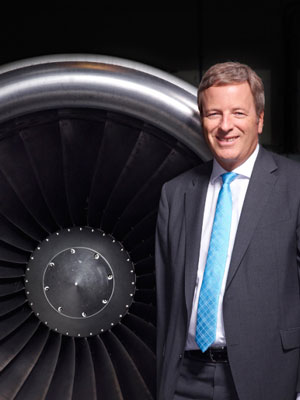 Do you have a message for ACI EUROPE as it marks its 25th anniversary this year?
Do you have a message for ACI EUROPE as it marks its 25th anniversary this year?
Congratulations to ACI EUROPE on 25 years! Aviation means challenge. In an extremely dynamic market environment, which is increasingly being influenced by state regulation and competitive restrictions, that challenge will not diminish. Europe’s airports need a common level playing field to be competitive. For that we need a strong airports federation in the future too.
What are your thoughts on the evolution of the airports industry in Europe over the past 25 years?
Airports used to be sombre waiting rooms with a runway. Today they are multi-modal traffic hubs that are perfectly networked with other transport modes and whose terminals lack nothing when compared with modern shopping malls. Passengers here can, for example, book parking spaces online and shop in duty free by smartphone – inconceivable 25 years ago.
How has your own business evolved over the past 25 years and what have been your main achievements?
Cologne Bonn Airport has undergone a rapid transformation. When we entered the low-cost business in 2002, Cologne/Bonn was a sleepy government airfield. Our face has changed strongly since then. We boast modern terminals, a shopping mall, a high-speed rail station and even a long-distance bus station of our own. Our market presence is unique and today we are one of the most important airports for low-cost carriers. Our passenger volume has doubled, in 2016 we are the strongest-growing German airport and we expect over 11.5 million passengers, a new record. And with the arrival of the new Eurowings, we are the only German airport with a low-cost product on long-haul.
What are your hopes and expectations for the continued evolution of the airports industry over the next 25 years?
Global aviation will continue growing and the role of the airports as driving forces for growth and prosperity will become still more important. At the same time, megatrends like digitalisation, demographic change, or traffic globalisation require adaptability and innovative power. In the future, passengers will only need a smartphone for everything surrounding flying. We have to prepare ourselves for that now and create the technical conditions for the “Airport of the Future”.
Jens Degner, Director Business Development, Gebr. Heinemann
 Gebr. Heinemann has been a member of ACI EUROPE since 1991.
Gebr. Heinemann has been a member of ACI EUROPE since 1991.
Do you have a message for ACI EUROPE as it marks its 25th anniversary this year?
“You have to come to your closed doors before you get to your open doors… What if you knew you had to go through 32 closed doors before you got to your open door? Well, then you’d come to closed door number eight and you’d think, ‘Great, I got another one out of the way’… Keep moving forward.” Joel Osteen
What are your thoughts on the evolution of the airports industry in Europe over the past 25 years?
European airports have seen tremendous development over the past 25 years, from infrastructure providers to businesses in their own right in a highly competitive market. In parallel, the importance of non-aeronautical revenues for European airports has greatly increased over the years, with airport shopping being a fundamental part of the passenger journey.
Gebr. Heinemann is proud to be part of ACI EUROPE and its Commercial Forum to further contribute to the provision of a high-class travel retail offer at European airports.
What are your hopes and expectations for the continued evolution of the airports industry over the next 25 years?
- Establishment of a passenger journey that reflects the needs and demands of travellers using airports, and at the same time improving satisfaction levels and sustainable travelling.
- New partnership models between airports and travel retailers, which will take into account different revenue streams from the digital business.
- Consolidation within the travel retail market will lead to less duty free competitors: the tender model needs to be adjusted.
- Airports, airlines and travel retailers have to work more closely to increase service levels for passengers to make their journey a unique experience.
Dr. Sani Sener, President & CEO, TAV Airports
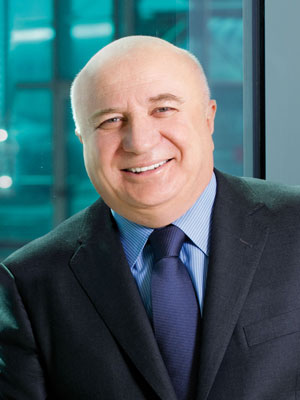 TAV Airports has been a member of ACI EUROPE since 2008.
TAV Airports has been a member of ACI EUROPE since 2008.
Do you have a message for ACI EUROPE as it marks its 25th anniversary this year?
ACI EUROPE is so much more than learning about the European aviation industry. It is an organisation designed to help airports and traffic evolve diligently through education, experience sharing, connection building and lobbying. Looking back over the past decade, I am amazed by the dedication, the efforts and time spent by the ACI EUROPE committee members to fulfil the commitment to develop a better aviation industry. I look forward to many more years of growing with ACI EUROPE and encourage other airports to join. It is an organisation that I am truly proud to be a Board Member of.
What are your thoughts on the evolution of the airports industry in Europe over the past 25 years?
We’ve experienced big changes in the European aviation market over the past 25 years. We’ve seen a big wave of liberalisation in Europe in the 90s. Europe has become a single aviation market for most of the airlines. Emerging markets in Eastern Europe have shifted traffic growth to the east. Then came the rapid growth of LCCs and higher security concerns. That’s a lot of change and a lot of challenge for such a short period of time. Airports started focusing more on efficiency-building in operations and generating revenues elsewhere, mostly in the commercial area.
What are your hopes and expectations for the continued evolution of the airports industry over the next 25 years?
The rising middle class in the emerging countries will drive the bulk of global traffic growth. With the shift of economic growth to eastern countries, there will be mega hubs in the Middle East and Asia to meet the aviation needs of the new middle class.
Most passengers from mature countries are accustomed to basic levels of service, but they will need to enjoy more freedom, flexibility and customer support systems. Some will want higher levels of personalised services and will require airports to differentiate services on value and quality of experience.
Julian Diaz, CEO Dufry
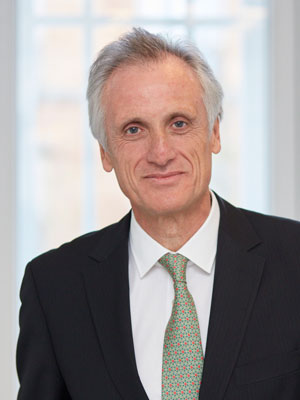 Dufry’s membership of ACI EUROPE dates back to 16 January 1992 when Weitnauer joined. The major companies Dufry has acquired have also been long-standing members, and Dufry continues to be an active World Business Partner.
Dufry’s membership of ACI EUROPE dates back to 16 January 1992 when Weitnauer joined. The major companies Dufry has acquired have also been long-standing members, and Dufry continues to be an active World Business Partner.
Do you have a message for ACI EUROPE as it marks its 25th anniversary this year?
ACI EUROPE is to be congratulated on giving Europe’s airport network a clear, consistent and authoritative voice. This has been instrumental in enabling much of the growth which companies – whose business is closely linked to the aviation ecosystem – have benefited from.
What are your thoughts on the evolution of the airports industry in Europe over the past 25 years?
The airports industry has seen phenomenal change and growth over the past 25 years. Over this period air travel has been ‘democratised’ by the additional capacity and competition to the flagship carriers posed by the low-cost airlines. As the cost of air travel has decreased and peoples’ horizons have broadened, airports have become connectors for people visiting friends and families, discovering new countries and cultures, as well as facilitating business travel. In this sense they are a unique ‘cosmopolitan crossroads’ for flows of people, never seen before in such quantities. Airport retailers have grown their businesses by bringing aspirational brands to a truly cosmopolitan audience. They have played their part in delivering the revenues that airports need to continue to expand their services, which in turn connect people across the globe.
What are your hopes and expectations for the continued evolution of the airports industry over the next 25 years?
We continue to see great potential to further increase the airport’s attractiveness as a shopping and meeting centre. Visiting an airport should be developed even more into a pleasant moment in life, where visitors enjoy spending their time and are open to exploring new offers and experiences.
Jost Lammers, CEO Budapest Airport and Kam Jandu, CCO Budapest Airport
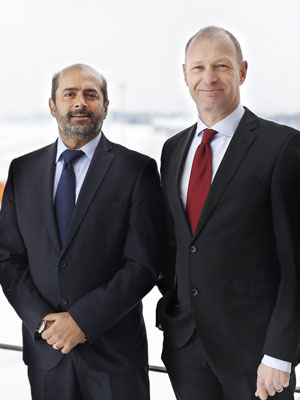 Budapest Airport is a founding member of ACI EUROPE since 1991.
Budapest Airport is a founding member of ACI EUROPE since 1991.
Do you have a message for ACI EUROPE as it marks its 25th anniversary this year?
Of course, we would like to congratulate ACI EUROPE on reaching this milestone. This longevity demonstrates that they truly add value to their membership and we wish them well for another 25 years and beyond.
What are your thoughts on the evolution of the airports industry in Europe over the past 25 years?
It has been almost a revolution as opposed to an evolution in that airports, having been mainly redundant pieces of infrastructure, have had to become more diversified, competitive, and had to invest heavily thanks to ongoing regulatory changes, often relating to safety. At the same time, airlines have tried to squeeze down what are good value airport charges, prompting airports to get into the travel retail business. Perhaps most significant is that, in order to keep up-to-date and relevant, many airports in Europe are now in private hands given the cost burden on keeping airports open and to cope with the growing number of passengers. We see this as a positive change because we have become businesses in our own right, having to be commercially astute, while keeping a focus on service and maintaining shareholder satisfaction.
What are your hopes and expectations for the continued evolution of the airports industry over the next 25 years?
We would like to see more airports moving into private hands, because it is hard to compete with loss-making and subsidised airports sometimes and this is painting a false economy for would-be airlines interested in operating to your airport when they compare fees for example. We believe ACI EUROPE can help achieve this with its ongoing efforts to support members in being able to operate as businesses who make the necessary high investments to operate and maintain their infrastructure, while trying to make a fair margin instead of being drawn into continued loss-making operations. Regulation can also play a part if it is fair and equitable.
Dave Bakker, SITA President Europe
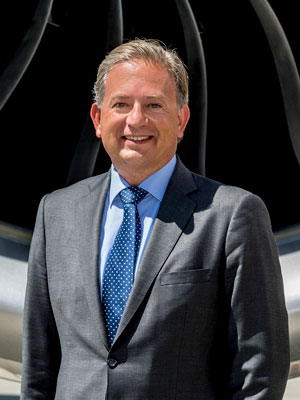 SITA was one of ACI EUROPE’s first members, joining at its inception in 1991.
SITA was one of ACI EUROPE’s first members, joining at its inception in 1991.
Do you have a message for ACI EUROPE as it marks its 25th anniversary this year?
Congratulations to ACI EUROPE on achieving this major milestone. Over the past 25 years there has been a tremendously positive change to the airport industry in Europe, and ACI EUROPE has been instrumental in driving that transformation. The organisation has always been a vital partner to SITA and the wider airport community, working together to address some of the biggest challenges facing the industry.
What are your thoughts on the evolution of the airports industry in Europe over the past 25 years?
In the past 25 years alone, global passenger numbers have more than doubled. During this time technology has driven down costs while income and wealth levels around the world have steadily grown, putting air travel within reach of an increasing number of people. At the same time, we have seen the emergence of low-cost airlines opening new destinations across Europe, as well as new powerful airlines from Asia Pacific and the Middle East that have established large European networks.
European airports have successfully risen to the task, cementing the region’s importance in global aviation. Europe remains home to some of the world’s biggest connecting hubs, while dozens of cities across the continent have found growing regional relevance, helping to connect more passengers to more cities across the continent.
What are your hopes and expectations for the continued evolution of the airports industry over the next 25 years?
Building bigger airports is no longer the silver bullet to managing surging passenger numbers. The modern passenger wants to spend as little time passing from kerb to gate, while eliminating the stress of check-in, immigration and security. They are also increasingly demanding that airport information be put at their fingertips. At the same time airport operators are looking for better, more efficient ways to provide a seamless service to a growing number of passengers, in the most cost-effective manner. These demands and expectations are changing the way airports are designed and the technology that is required to manage the airport of the future.
Julian Jäger, Member of the Management Board, Vienna Airport
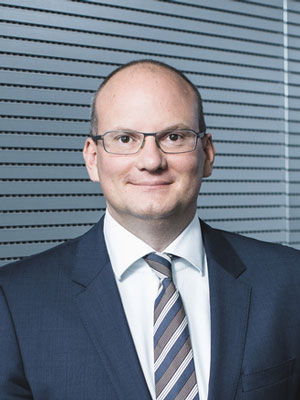 Vienna Airport is a founding member of ACI EUROPE since 1991.
Vienna Airport is a founding member of ACI EUROPE since 1991.
Do you have a message for ACI EUROPE as it marks its 25th anniversary this year?
ACI EUROPE has accompanied the aviation industry since its founding in 1991. The entire sector, and thus Vienna Airport as well, has been confronted with steady change and growth. We wish ACI EUROPE all the best for the future and look forward to exciting years ahead and a continuation of our good cooperation.
What are your thoughts on the evolution of the airports industry in Europe over the past 25 years?
The aviation industry has changed enormously over the last 25 years. Since 1991, passenger volume at Vienna Airport has increased more than fourfold, from about 5.5 million to 22.8 million. Vienna Airport has adapted its capacities to this passenger growth on the basis of the new Terminal 3, the renovated Terminal 1 and Pier West, and the highest tower in Central Europe. Thanks to our terminal development programme, in which we will invest €500 million, we are on the right track towards preparing ourselves for future developments.
What are your hopes and expectations for the continued evolution of the airports industry over the next 25 years?
One strategic issue is the development of long haul routes, where we have noticed a strong increase in recent years. Strengthening short and medium haul services is also still important. As the Eastern European market is difficult at the moment, we expect strong growth in the low-cost segment in the coming years. Interesting markets could be Asia, including Hong Kong, and destinations in South America. On the other hand, we are following our Airport City strategy and the results are quite positive: An international logistics investment is about to be finalised, adding up to 40,000sqm of new building infrastructure close to the airport. Furthermore, we re-purchased properties of more than 25,000sqm in the core area of Vienna Airport. In turn, this will serve as the basis for the start of a future real estate development project within a short time.
Ezio Balarini, Chief Marketing Officer, Autogrill
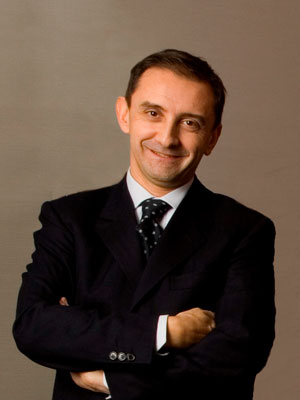 Autogrill has been a member of ACI EUROPE since 1996.
Autogrill has been a member of ACI EUROPE since 1996.
Do you have a message for ACI EUROPE as it marks its 25th anniversary this year?
ACI EUROPE is the key professional association supporting airports and all of the companies that operate in the airports industry. Our mission – “feel good on the move” – is perfectly fitting, and with ACI EUROPE we aim to support a radical service evolution that goes with the air transport development. ACI EUROPE is one of our most important partners and reference points to support our continuously evolving industry. I wish for ACI EUROPE to continue to lead and support this industry for many years to come.
What are your thoughts on the evolution of the airports industry in Europe over the past 25 years?
The evolution of the airports industry in Europe over the past 25 years has opened new opportunities, and is also one of the most important developments business-wise. I would compare the development of air travel only with the development of the digital industry.
There are new challenges too, as airports have transformed into places with a high level of security, places where travellers have to be served with maximum effectiveness, and offering maximum services to make travellers feel good in their overall airport experience. The food service industry has to adapt along with airports, and grow and change with them, along with demographic changes in today’s world.
What are your hopes and expectations for the continued evolution of the airports industry over the next 25 years?
The continuous evolution of the airports industry, and increasing global mobility and airport traffic, will make more and more airports places where people will pass a lot of time.
The evolution of the airports industry will open up new business opportunities, both for retail and food service businesses. Autogrill’s vision of this evolution is that airport restaurants will move even more towards a true and meaningful experience for our guests, driven by engagement with them, while taking care of environmental and business sustainability.
Digitalisation is another key pillar of our vision.
Sara Bresee, Chief Marketing Officer, Morpho Detection
 Morpho Detection has been a member of ACI EUROPE for several years.
Morpho Detection has been a member of ACI EUROPE for several years.
Do you have a message for ACI EUROPE as it marks its 25th anniversary this year?
Congratulations and best wishes on 25 years of continued success! At Morpho Detection, we appreciate the critical insights and updates related to the European civil aviation industry that ACI EUROPE provides. We also see the strategic importance ACI EUROPE has brought by creating a platform through which industry participants can exchange knowledge, influence policy, and develop innovative solutions to make travel safer and more enjoyable.
What are your thoughts on the evolution of the airports industry in Europe over the past 25 years?
The growth of the European civil aviation industry over the past 25 years has been extraordinary, especially with the growth of global economic uncertainty and evolving security threats. We believe this is a testament not only to the importance of the European Economic Area (EEA) within the global economy, but also Europe’s strategic location as a cultural and transportation hub.
Leaders in the European aviation industry have demonstrated a long-term vision by making unprecedented investments in airport infrastructure. For example, Frankfurt Airport is embarking on a multi-billion dollar expansion to add a third terminal, complementing a complex and integrated network of air cargo, rail, and road connections. In parallel, European policy and aviation leaders are also accelerating investments in threat detection technology to better ensure safety and meet the challenge of increasing terrorist activity. One significant investment that will impact all airports in Europe over the next several years is the move towards Standard 3-compliant hold baggage screening systems.
What are your hopes and expectations for the continued evolution of the airports industry over the next 25 years?
Airports are going to continue to evolve and become hubs of connection for travellers around the world. As technology advances, we’ll see new ways to share critical data, create greater efficiencies, and deliver the ultimate customer experience. A key part of that experience is ensuring the safety of passengers. When regulators, airport authorities, and strategic technology innovators come together, we can all ensure intelligent data gathering and sharing. We hope to work together on new detection solutions with the flexibility and scalability to meet these and future threats without disrupting passenger and commercial operations.
Alexander Pfurr, CEO airport systems, thyssenkrupp Access Solutions
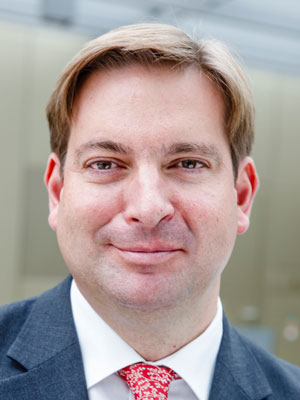 Do you have a message for ACI EUROPE as it marks its 25th anniversary this year?
Do you have a message for ACI EUROPE as it marks its 25th anniversary this year?
The well-managed growth of the airport industry has only been possible with the ACI EUROPE movement.
What are your thoughts on the evolution of the airports industry in Europe over the past 25 years?
The growing needs for airport infrastructure could only be satisfied with private investors and public-private partnerships.
How has your own business evolved over the past 25 years and what have been your main achievements?
Thyssenkrupp Airport Systems has been growing in line with the airport industry to be a major supplier for passenger boarding bridges, related equipment and airport services, constantly improving the movement of passengers in comfort and safety.
What are your hopes and expectations for the continued evolution of the airports industry over the next 25 years?
Being able to manage the continuing growth in a coordinated and environmentally-friendly way.







